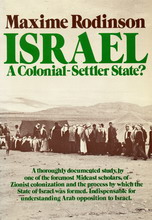
Ulli Diemer — Radical Digressions
Articles Lists
- Selected Articles
- Articles in English
- Articles in French
- Articles in Spanish
- Articles in German
- Articles in Other Languages
- Articles A-Z
- RSS feed
- Subject Index
Selected Topics
- Alternative Media
- Anarchism
- Bullshit
- Capital Punishment
- Censorship
- Chess
- Civil Liberties
- Collective Memory
- Community Organizing
- Consensus Decision-making
- Democratization
- Double Standards
- Drinking Water
- Free Speech
- Guilt
- Health Care
- History
- Identity Politics
- Interviews & Conversations
- Israel/Palestine
- Libertarian Socialism
- Marxism
- Men’s Issues
- Moments
- Monogamy
- Neo-Liberalism
- New Democratic Party (NDP)
- Political Humour/Satire
- Public Safety
- Safe Spaces
- Self-Determination
- Socialism
- Spam
- Revolution
- Trotskyism
Blogs & Notes
- Latest Post
- Notebook 10
- Notebook 9
- Notebook 8
- Notebook 7
- Notebook 6
- Notebook 5
- Notebook 4
- Notebook 3
- Notebook 2
- Notebook 1
Compilations & Resources
- Connexions
- Other Voices newsletter
- Seeds of Fire
- Alternative Media List
- Manifestos & Visions
- Marxism page
- Socialism page
- Organizing Resources
- People’s History, Memory, Archives
- Connexions Quotations page
- Sources
- What I’ve been reading
- What I’ve been watching

Words of Wisdom
- Capital is reckless of the health or length of life of the laborer, unless under compulsion from society.
- – Karl Marx

Israel and the Arabs:
the good guys don't always wear white hats
Maxime Rodinson
Israel: A Colonial-Settle State
Monad Press, $1.95
Reviewed by Ulli Diemer
Maxime Rodinson seems to have a knack for being timely. When his Israel: A Colonial-Settler State first appeared in the original French in 1967, it was followed within days by the Six-Day War. The release of the book in an English version this year barely predated the outbreak of the current war.

His treatise is a slim but weighty volume discussing the roots of the current mess in the tortured Middle East. Rodinson, a French Jewish Marxist, documents the colonialist and even racist attitudes that permeated (and continue to hold sway in) the Zionist movement, including its socialist wing.
Early Zionist leaders continually appealed to and bargained with governments, stressing to them the advantages to the European imperialist powers of having a modern capitalist outpost in the Middle East. In a tactic born of desperation, they even played up to the anti-Semitism of European governments, propagandizing Zionism as a means of removing the Jews from Europe.
When Jewish settlers began to move into Palestine, their attitude to the Arabs living there was typical of all Europeans of that age to "inferior", "uncivilized" peoples. The conservative Zionists wanted to get rid of them, the left Zionists to bring them the advantages of the 'white man's civilization.'
They made no effort to integrate their struggles with those of the Arabs against colonial rule. Rather, the Zionists proceeded publicly on the assumption that the land they sought was empty, and privately with the conviction that the indigenous population would have to be subjugated or removed.
To the extent that they tried to legitimize their presence in the Middle East, it was with the rulers, not with the people, that they dealt. They came very close to finalizing arrangements with both the Turks (Palestine was part of the Ottoman Empire) and the Arab King Faisal, both of whom were somewhat sympathetic to the aims of the Zionists, and willing to accept a Jewish area in Palestine if they could obtain concessions to sweeten the deal.
With the establishment of the State of Israel came the formalization of inferior status for the Palestinian Arabs - large-scale denials of political and economic rights. And with each successive war, more and more Arabs have come under Israeli rule.
The result has been Arab fury at what they consider the implantation of an imperialist, oppressive, land-hungry state in their midst. The opposing claims of Arabs and Jews have seemed irreconcilable.
Rodinson disposes of some of the traditional Zionist justifications for their presence in the Middle East. The argument that the Jewish people had lived there some two thousand years before, he points out, is rather untenable: using such reasoning, the Arabs, for example, could lay claim to Spain. Nor was Palestine 'empty', as is sometimes claimed in Zionist propaganda.
But Rodinson goes farther than those who merely reverse the dominant ideology to set up the Arabs as the 'good guys' and the Israelis as the 'bad guys'.
He shows that, whatever the faults of Zionism (and he spends most of the book documenting them) the situation in the Middle East is the tragic product of two peoples brought into conflict by forces largely beyond their control.
The Arabs, for their part, wanted to end all foreign domination of their countries, and were unwilling to suffer oppression at the hand of European intruders, be they Turk, British, or Jewish.
The Jews meanwhile were being persecuted and butchered beyond belief in Europe. No country in the world was willing to welcome them in large numbers as they sought to flee. Palestine was their only viable alternative. Only a moralistic blindness bred by the distance of years and miles, and fostered by ignorance of the experience of the Jewish people, could condemn them for seizing the option of Palestine, or for sharing the current attitudes of the entire white world.
Despite their record there, it is stupid to condemn the Jews for coming to Palestine. They had no choice. It is impossible to understand the situation without coming to grips with that fact, any more than it is possible to understand the situation while refusing the admit the oppressive nature of the present Israeli state.
But it is much, much easier to point at the causes of a problem than to find a solution. It's 'clear', in a manner of speaking, that the Arab nations must recognize Israel's right to exist, that Israel must become a bi-national, not a Jewish state, that Israel cannot retain the territories it conquered in the Six Day War.
These points, however, are academic platitudes until profound social and political changes occur in both Israel and the Arab states. In this context, it's instructive to note that Rodinson's analysis first appeared in an essay in Jean-Paul Sartre's Les Temps Modernes in a special 1000-page issue on the Middle East, with contributions form Jewish and Arab leftists. It is significant and frightening that even among these socialists, united, supposedly, by internationalism, humanitarianism, and class analysis, there was little common ground. A wide gulf separated the Arabs closest to being sympathetic to Israel from those Israelis farthest on the left. It is clear that when even these people cannot agree, there is little climate for reconciliation at present. Its creation will be a long process indeed.
In the meantime, it is painful to read the facile solutions of people far from the scene, who are quick to assign blame and offer blueprints to solve the problems - those who, in Rodinson's phrase, "preach vengeance and murder from ivory towers".
As long as an expansionist, oppressive, militaristic Israel confronts reactionary, repressive, militaristic Arab states that have yet to renounce even genocide, there is no solution, unless it be the newest version of the "final solution", that of driving Israelis "into the sea".
All that can be hoped for is a tolerable settlement of borders and provision for security arrangements until Arabs and Jews begin, and carry out, the long and arduous and long overdue process of setting their own houses in order.
Published in The Varsity, November 23, 1973
Subject Headings
History/Israeli -
Israel -
Palestine